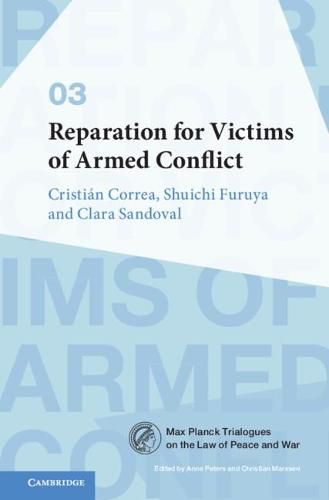Readings Newsletter
Become a Readings Member to make your shopping experience even easier.
Sign in or sign up for free!
You’re not far away from qualifying for FREE standard shipping within Australia
You’ve qualified for FREE standard shipping within Australia
The cart is loading…






Are victims of armed conflict entitled to reparation, which legal rules govern the question, and how can reparation be implemented? These key questions of transitional justice are examined by three scholars whose professional, theoretical, and methodological backgrounds and outlooks differ greatly. They discuss how regional human rights case law, international criminal law, the practice of ad hoc international bodies, and domestic practice give rise to a right to reparation. This right emerges out of the interplay between international and domestic law. The problems of mass claims, fragile statehood, and the high risk of marginalisation of particular groups of victims are addressed. The analysis is alert to the current backlash against international legal institutions, and to the practical constraints in making post-conflict law work. The multiperspectivism of the trialogical setting exposes the divergence and complementarity of the authors’ approaches and leads to a richer understanding of the law of reparation.
$9.00 standard shipping within Australia
FREE standard shipping within Australia for orders over $100.00
Express & International shipping calculated at checkout
Are victims of armed conflict entitled to reparation, which legal rules govern the question, and how can reparation be implemented? These key questions of transitional justice are examined by three scholars whose professional, theoretical, and methodological backgrounds and outlooks differ greatly. They discuss how regional human rights case law, international criminal law, the practice of ad hoc international bodies, and domestic practice give rise to a right to reparation. This right emerges out of the interplay between international and domestic law. The problems of mass claims, fragile statehood, and the high risk of marginalisation of particular groups of victims are addressed. The analysis is alert to the current backlash against international legal institutions, and to the practical constraints in making post-conflict law work. The multiperspectivism of the trialogical setting exposes the divergence and complementarity of the authors’ approaches and leads to a richer understanding of the law of reparation.